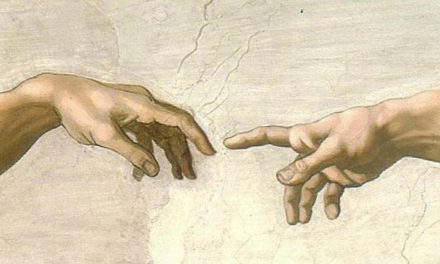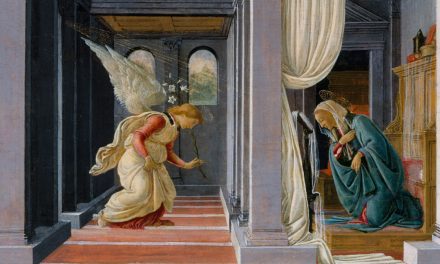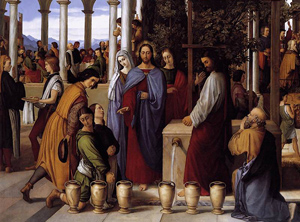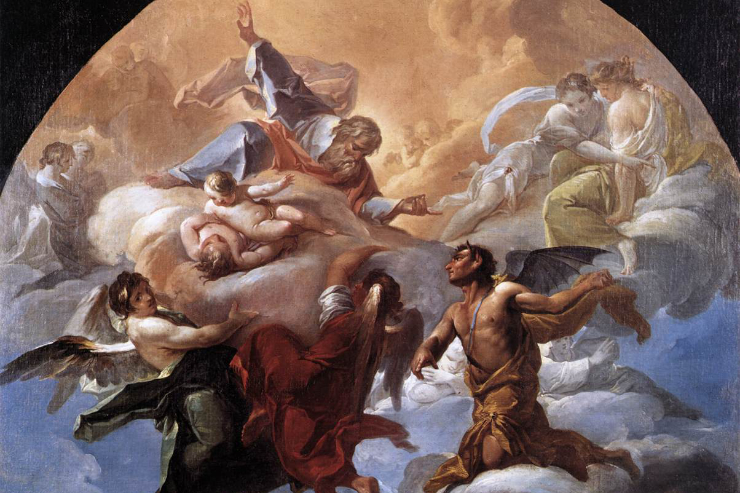The Trial of the King — Christ Before Pilate and the Chief Priests
Editor’s Note — Part 10 of Jesus, Kingdom Builder, a 13-part study of St. Matthew’s Gospel by Dr. Sri. The series will run every two weeks.
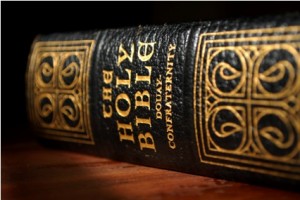
- Photography © by Andy Coan
Jesus’ actions were bound to get Him in trouble sooner or later. In those days, someone couldn’t just ride into Jerusalem, signal messianic fulfillment, and then expect to go unnoticed. Nor could one march into the holy Temple, condemn it, and predict its destruction without attracting the wrong sort of attention.
Although the crowds rejoiced at His coming to Jerusalem and welcomed Him as a king (cf. Mt. 21:1-11), the Jewish authorities must have been anxious. How could they get excited about a growing movement which challenged their authority and shook the nation’s very identity? In their eyes, Jesus’ entire movement stood in opposition to the Temple and the Torah. They saw Him leading the people away from God’s holy house and from God’s sacred law. They would ask: “How could this man be the Messiah? He eats with sinners, disregards the purity laws, and forgives sins on His own authority. And who does He think He is condemning God’s holy Temple in this way?” They probably saw Jesus as a false prophet, leading the people astray. Therefore, He had to be stopped (cf. Deut. 13:1-5).
Wicked Tenants
During that tumultuous week in Jerusalem, Jesus seemed to be aware that His days were now numbered. He even told parables which prefigured His upcoming death. For example, Jesus told a story about a landowner who let his vineyard be run by tenants. When the landowner sent his servants to collect the fruit from the land, the tenants killed each of the servants one by one. Finally, the landowner decided to send his own son, saying, “They will respect my son.” But the tenants murdered even the son. In the end, the tenants were to be driven off the land and killed for their wickedness (cf. Mt. 21:33-46).
Jesus told this story to the chief priests (cf. Mt. 21:23). Since He was building on a traditional Jewish story (taken from Isaiah 5), they would have recognized that the vineyard represented Israel and the landowner was God. But Jesus adds His own twist to the story. He introduces the tenants who are in charge of the land, but have not yielded fruit for the landowner. These tenants represent the leaders of Israel. He also includes the servants who were sent by the landowner to collect the fruit. These servants represent the prophets whom God sent to challenge Israel to be fruitful and to live out its calling to be a light to the nations. Though Israel rejected all the prophets, God is now sending one last messenger—one who surpasses all the others. This time, God is sending His own Son, Jesus. And sadly, the leaders of Israel will kill Him, too.
After hearing the story, the chief priests realized that Jesus was speaking about them (cf. Mt. 21:45). They were like the tenants who had rejected God’s prophets, and now they were about to kill the landowner’s son. As a result, they would be punished like the tenants in the story. Jesus said to them, “Therefore I tell you, the kingdom of God will be taken away from you and given to a nation producing the fruits of it” (Mt. 21:43).
On Trial
With the help of the apostle Judas, the chief priests and elders eventually arrested Jesus at night and brought Him on trial before the high priest, Caiaphas, and the other Jewish leaders in Jerusalem (cf Mt. 26:57-68). First, the council tried to gather false testimony against Him. Then, He was accused of condemning the Temple. All the while, Jesus remained silent, offering no defense. Only once did He speak, when the high priest stood up and commanded Jesus by oath to tell him one thing: “Tell us if you are the messiah!” At that, Jesus finally responded and, in two short sentences, He turned their whole worldview completely inside out:
“You have said so. But I tell you, hereafter you will see the Son of man seated at the right hand of Power, and coming on the clouds of heaven (Mt. 26:64).”
At this, the high priest tore his robes in disgust and accused Him of blasphemy, and the council members slapped Him, spat on Him, and condemned Him to death. A harsh punishment for two little sentences! What did Jesus say that got Him into so much trouble? Why did the chief priests become so infuriated at these words? Why did these words send Jesus off to the Romans?
Night Vision
In speaking of the Son of man coming on the clouds of heaven, Jesus was alluding to a famous prophecy in the Book of Daniel. The prophet Daniel had a dream— perhaps it could be considered a nightmare—about four dreadful beasts who were devouring God’s people: a lion with wings, a maneating bear, a four-headed leopard, and a most fierce beast with ten horns and iron teeth. Each beast represented four powerful gentile kingdoms which waged war on the Jewish people. Suddenly, a mysterious human figure appeared in the dream—“one like a son of man” (Dan. 7:13). The beasts were then destroyed, while the son of man was taken up to the throne of God and given authority to rule over all the nations.
This was a prophecy of great hope. In the vision, the son of man represents God’s faithful people who had suffered under one severe gentile regime after another. But in the end, the son of man eventually would be rescued by God and triumph over the enemies. God’s people finally would be freed, and they would share in His reign over all the nations.
The Chief Beasts
In His trial before the high priest, Jesus evoked this vision of Daniel and associated Himself with the son of man. In this daring move, Jesus was claiming to be representing God’s people, as the son of man had done in Daniel’s dream. This is particularly striking when we consider the fact that He said this in front of the high priest and the Jerusalem council—the Jewish leaders who saw themselves as holding that representative role for the people. Right in their face and right in their headquarters in Jerusalem, Jesus daringly tells them that He is now playing that part. He is the son of man, the true representative of God’s people. And God would rescue Him from His enemies and give Him dominion over all the nations. Tough words from a poor defendant on trial, especially from one whose own life was on the line!
But that is not all. If Jesus was claiming to be the persecuted son of man here in this trial before the chief priests, what was He saying about His accusers? In Jesus’ astonishing retelling of this traditional story from Daniel, the leaders of Jerusalem have assumed the role of the beasts who persecute the son of man. Now they are the enemies of the Jews because they are opposing the one whom God had sent to free God’s people.
Can you feel the punch line? Jesus is saying that the leaders of Jerusalem have become like the gentile monsters which have oppressed the Jews for centuries. The leaders of God’s people have become the enemies of God’s people. The chief priests have become the chief beasts.[1] Jesus simply could not have struck a lower blow to His accusers. It’s hardly surprising that Caiaphas tore his robe and shouted, “Blasphemy!” while the others beat Him, spat on His face, and called for the death penalty.
Trial Before Pilate
Under Roman rule, the Jews did not have the authority to carry out an execution on their own. That’s why the chief priests handed Jesus over to Pilate, the Roman governor who was in charge of Palestine.
The reader of Matthew 27 should notice how Jesus’ trial before Pilate is much different from His interrogation before Caiaphas. As the local leader for the Roman empire, Pilate was not concerned about what Jesus thought of the Temple. He was not interested in whether Jesus claimed to be the son of man in Daniel 7 or what Jesus thought about the chief priests. Pilate basically had only one question for Jesus, and it was a political one: “Are you the King of the Jews?” (Mt. 27:11).
In the Roman world, there is no king but Caesar. Any opposition to Rome must be squashed immediately. Any rival king to the Emperor must be exterminated. So Pilate sought to determine if Jesus really was some type of rebel king, a real threat to the empire.
Pilate soon realized that Jesus was not the ordinary sort of revolutionary leader who threatened Roman rule. He knew that the real issue in Jesus’ trial involved a religious rivalry with the Jewish authorities (cf. Mt. 27:18). Pilate wanted to release Jesus, but he could not withstand the pressure from the crowds who had been stirred up by the chief priests and were demanding that Jesus be crucified. John’s Gospel tells us that the crowds even threatened Pilate, telling him that if he released a rebel-king, he would prove himself to be a traitorous governor, disloyal to Caesar: “If you release this man, you are not Caesar’s friend; every one who makes himself a king sets himself against Caesar” (Jn. 19:12). The last thing Pilate would want would be for that type of accusation to reach Caesar’s ears back home in Rome. Afraid of a riot and fearing for his own job, Pilate caved in and handed Jesus over to be crucified (cf. Mt. 27:26).
The Final Choice
In the midst of the mounting riot surrounding the trial, Pilate offered to release one prisoner to the Jews, either Jesus or a man named Barabbas. “Whom do you want me to release for you, Barabbas or Jesus who is called Christ?” (Mt. 27:17). He left it to the crowd to decide, and they chose Barabbas, telling Pilate to send Jesus to the Cross.
Who was this mysterious prisoner named Barabbas? And why would the crowds choose him over Jesus? Barabbas means “son of the father.” Besides giving us his name, however, Matthew doesn’t say much about him. But he does give us a brief description that is quite revealing. He tells us that Barabbas was “a notorious prisoner”—so notorious that Matthew could assume that his readers would have had no doubt which Barabbas he was talking about. It was the famous Barabbas who was imprisoned for murder during a revolutionary movement (cf. Mk. 15:7; Lk. 23:19; Jn. 18:40).
So when Pilate stood before the crowds with this offer, the Jews were faced with one final choice: the rebel Barabbas or Jesus. But this wasn’t just a choice between two different prisoners. It was a symbolic choice between two different ways of being Israel. Who was the true Israelite? Who was the true son of the Father?
Which road would the people follow? The way of Barabbas or the way of Jesus? The path of bitter nationalism or the path of welcoming all the outcasts and gentiles? The way of war, vengeance, and military action, or the way of peace, forgiveness, and the patient enduring of suffering?
Ultimately it came down to choosing between the way of the revolutionary separatists or the way of the Cross. The crowds chose the former, while Jesus chose the latter.
Footnotes:
[1] Cf. Chris Wright, Knowing Jesus Through the Old Testament (Downers Grove, IL: InterVarsity Press, 1992), 152-53.
Questions for Discussion:
- Why does the high priest Caiaphas accuse Jesus of blasphemy? Why are Caiaphas and the chief priests so upset at Jesus’ response?
- Why does Pilate give in to the crowd? In light of John 19:12, what do you think Pilate ultimately is afraid of? What might have happened to Pilate if he released Jesus?
- Like Pilate, we too often let our fears keep us from doing what we know is the right thing to do. Sometimes it is fear of what others may think of us or what they may say about us. Other times it is fear of losing a job, losing someone’s respect, or not receiving a promotion. Sometimes it is fear of having to admit that we have failed or done something wrong, or fear of asking someone for their forgiveness. What fears keep you from doing the right thing? Why? How is Jesus’ embrace of the Cross a model for how we should face the worries and anxieties in our own lives which keep us from being the men and women God wants us to be?
Acknowledgement:
Reprinted with permission from the November 1999 issue of Lay Witness magazine. © 1999 Catholics United for the Faith / www.cuf.org/Laywitness/index.asp
Please help us in our mission to assist readers to integrate their Catholic faith, family and work. Share this article with your family and friends via email and social media. We value your comments and encourage you to leave your thoughts below. Thank you! – The Editors

